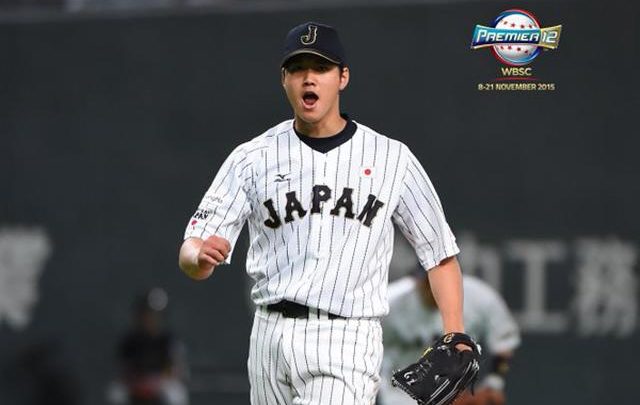
MLB Agrees to Grandfather Otani Under Old Posting Rules, Still Needs Union Blessing
After a great deal of back and forth in the last week alone, it appears as though the Shohei Otani saga may finally be entering the home stretch. After it looked for a bit like his prospects of coming to MLB this season were on their deathbed, the star pitcher/outfielder resuscitated them when he hired new representation. Then came word that MLB and Nippon Professional Baseball had reached an agreement to grandfather the now-defunct posting system for one more year.
That bit about hiring a US-based agent is going to be very important with the last remaining hurdle in the process, which is the approval of the Players Association. According to Joel Sherman of the New York Post, the union had not been made aware of the agreement as of early Wednesday afternoon. Why does the MLBPA care about a guy who isn’t even a member yet? Glad you asked.
Under the rules of the new collective bargaining agreement that went into effect prior to the 2017 season — and that established the rules that govern Otani’s limited salary — the union can veto any transfer agreement. This isn’t just for Japan and NPB, but covers Mexico, Cuba, etc. Mexico is a particularly interesting case here, since the teams there are entitled to up to 75 percent of the bonuses paid to their players by an MLB team.
That little wrinkle is a great topic all on its own and has helped the Cubs tremendously during their period of international bonus restrictions, but it may help us to understand more about Otani’s situation. While a player getting only a quarter of the bonus paid out by his new team seems like a raw deal, those rules have been in place for a while and the union is confident that Mexican players understand the way everything works.
In Otani’s case, we’re talking about the first year of a CBA that drastically limits his earning potential relative to both his predecessors and his old team. Bidding on the posting of previous star pitchers like Masahiro Tanaka and Yu Darvish greatly exceed the more recent $20 million flat rate, but those players were free to negotiate monster free agent contracts thereafter.
Otani, on the other hand, will be limited to a bonus ranging from $300,000 to roughly $3.5 million. Sounds really light until you realize that the international free agency period actually opened in early July and many teams, still unsure of the sincerity of Otani’s intentions, have already spent the bulk of their bonus pools. The Rangers have the most to spend (above), with the Yankees close behind ($3.25 million).
Anyway, the moral of the story is that the MLBPA wants to ensure that a player is well aware of the situation and that he’s not being led into something that provides such disproportionate value to his old team. If you think the setup in Mexico is skewed, consider that Otani could earn a bonus that’s only 1.5 percent of what the Nippon Ham Fighters will receive to post him. Oof.
That kind of disparity is something the union might frown upon in the interest of its future members. In fact, the Players Association initially refused to give the okay when MLB had stated a willingness to grandfather the old posting system. That was prior to Otani hiring Nez Balelo and CAA, though, so now there’s more of a direct conduit between the various parties involved here.
Should the MLBPA give the green light, it appears all that would be left is for teams to pony up the $20 million posting fee and for Otani to choose his new employer. And that is going to have a massive impact on free agency, though not in the same way we’re used to with other players of his stature. Because Otani’s salary is so limited, the team that lands him is still very much in play for other big names.
There’s certainly no guarantee that he’s going to be a star, not by a long shot. But you have to admit that it’s exciting to imagine watching a pitcher who throws 100 mph every fifth day and then hits balls even harder while manning a corner outfield spot during the four days in between.
The Cubs are believed to be very much in the mix for Otani’s services, even with their $300,000 bonus limit. After all, what’s the difference between $300,000 and $3.5 million for a guy who’s already shown a willingness to forego hundreds of millions as a full free agent? Not much. Of course, those limits bring up the possibility of all manner of contractual shenanigans, but we’ll leave that for another time.
This is really exciting stuff, folks, and I’m really hoping the union lets this all go through.

